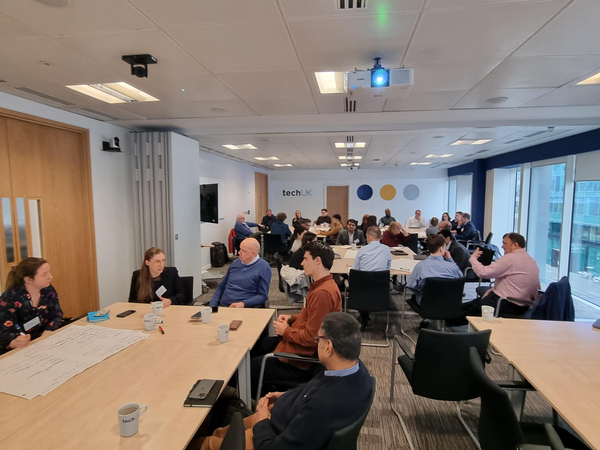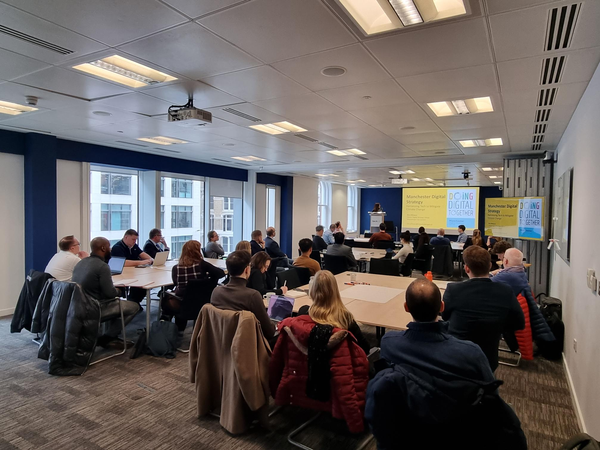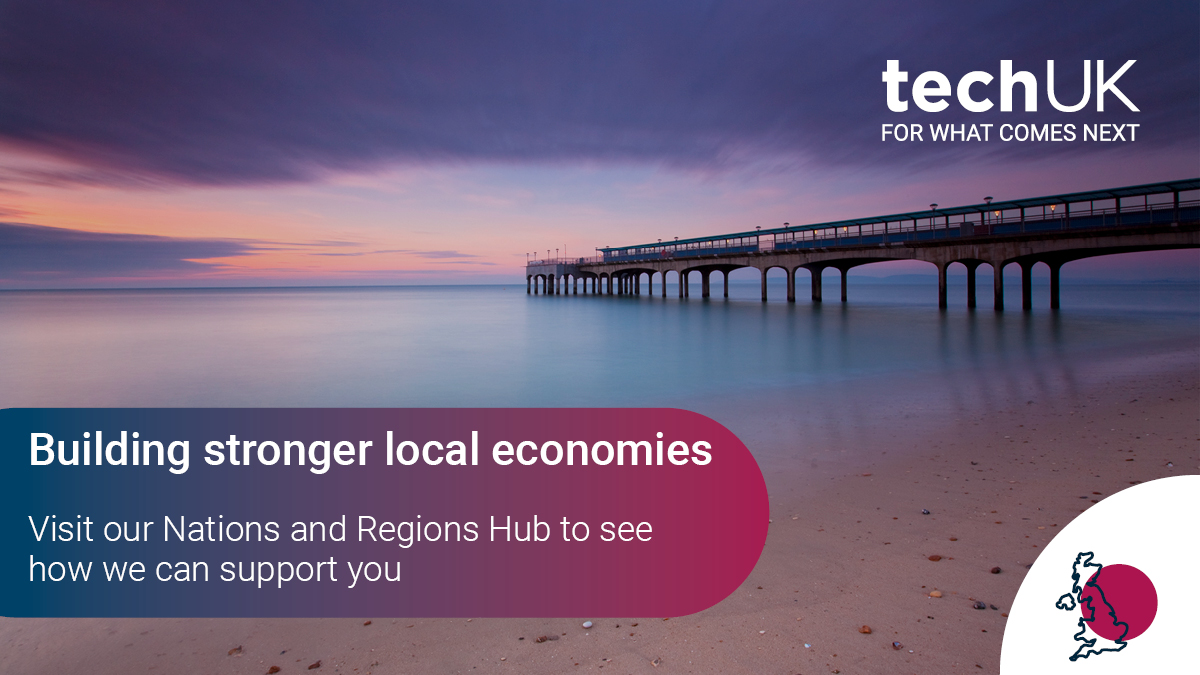Event round-up: Local Government Innovation Workshop Harnessing Tech to Mitigate Climate Change Risks and Meet Net Zero
On the day, we looked to understand more about how adopting innovation can help local authorities on the long-term as well, reducing costs and improving their digital strategies in the future. We discussed what digital innovation and technologies are needed to help public sector organisations mitigate climate change risk and improve the adoption of sustainable practices in their community. We were joined by industry and local public services stakeholders.
Key themes and highlights
Across the room, there were a few themes that took centre in each conversation:

Procurement
The strong focus on procurement is apparent due to a lack of common frameworks, working in silos across departments and processes being fragmented, having different interests across different councils, and the need for more transparency in commercial pipelines. It was also shown that procurement needs to allow and support innovation and focus on the solutions that can be provided, creating a more effective and robust procurement strategy, this is echoed in our Local Public Services Innovation: Creating a catalyst for change paper, which also highlights the need for more efficient procurement and market engagement to enable innovation.
Behavioural change
There is also a strong emphasis on the need for behavioural change across the population, starting with collecting and analysing data that can help to understand what behaviours can and cannot be changed, alongside the data ethics that come when looking to monitor and track resident’s behaviour. We also need to remove the barriers to adopting these changes long term, working and consulting with citizens to co-design solutions and create pilot projects to understand what approach works best according to different local needs, as well as understanding how sharing best practice is more efficient.
Communication
Communication is seen as the underpinning element of ensuring technologies that can help on the sustainability journey are adopted in the long run and residents are receptive to changes. We need to understand better how data can be used efficiently to communicate local authorities’ plans to achieve net zero targets and getting residents buy in. Councils need to be able to use tech to communicate meaningfully insights and decisions they need to make to inform citizens and empower individuals to act sustainably as a default.
Standardisation & data analysis
One of the challenges local authorities are facing is the lack of frameworks standardisation for defining emissions from across the sectors. Similarly, there needs to be standardisation when it comes to the way we measure emissions and analyse the data to understand how sustainability projects impact emissions reduction and also use the data efficiently for future decisions-making.
The discussion highlighted the need for more progress in:
- the way we access the data.
- understand the data that is available.
- improve data modelling and monitoring taking into consideration data ethics and the specifics of the application.
- improving data interoperability.
- look at what platforms and dashboards are needed.

Partnerships & collaboration
The importance of creating partnerships also came through from the conversations, whether these are public-private (e.g., between councils and local enterprises), public-individual (e.g., solar PVs), collaborative buying between local authorities. There is also an opportunity for local authorities to buy tech “as a service”. We need to collaborate more efficiently to ensure we share best practice and lessons learned from projects which other communities can apply. Local authorities also play a key role in the planning process collaboration for projects when developing business cases.
Social value
Another important aspect is the way we measure social value impact, however this not a requirement for every supplier and there aren’t clear ways to measure and monitor this. We also need to understand better the implications of the rural vs urban divide and how we can focus on digital inclusion and support rural businesses as well. TechUK will also be hosting a roundtable with NEPO to better understand where the challenges lie for tech suppliers to deliver social value.
Circular economy
Looking at the role circular economy plays in this is also important for councils when looking at electronics and hardware that needs to be replaced, recycled or when new items need purchasing. This also ensures supply chains that are risk free and transparent, supporting sustainable choices.

Next steps
techUK members
Whilst the journey towards net zero is complex, there are also numerous opportunities to innovate and create positive outcomes, using digital and tech as an enabler for local authorities priorities and strategies.
If you are a techUK member that offers a tech solution in any of the themes above or more, please contact Ileana at [email protected] to register your interest to present to local authorities at a pitch fest type of event in May (date TBC).
Local authorities
If you are a local authority or combined authority and would like to be part of the pitch fest event in May, please also contact [email protected] to be added to the attendees list, which will be free for local public services organisations to attend.
techUK – Building Stronger Local Economies
techUK champions the tech sector throughout the UK. We work with local authorities, devolved government, and local and national policy makers to advocate for the tech sector in strengthening economic growth and resilience. We provide opportunities for our members and local stakeholders to meet, build relationships, and collaborate to drive forward local projects. For more information or to get in touch, please visit our Nations and Regions Hub and click ‘contact us’.

Get our Nations and Regions insights straight to your inbox:
Sign-up to get the latest updates and opportunities from our Nations and Regions programme.

